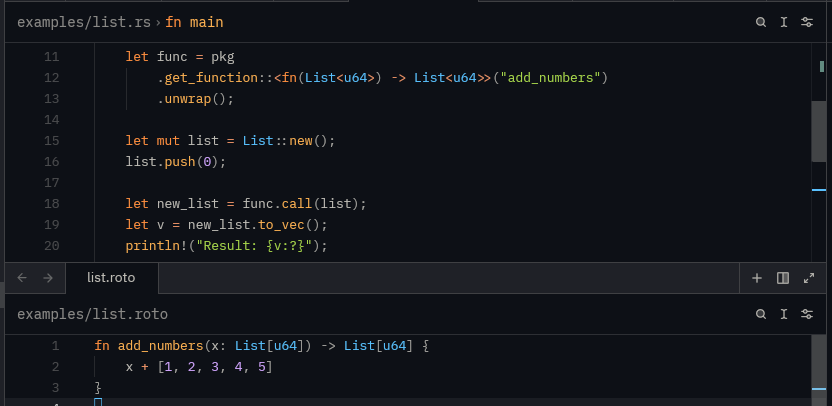In other #iocaine news, I'm doing some final polishing on #Lua scripting support, to make it as convenient as #Roto.
Right now, there's a differenc between how Lua and Roto scripts are loaded: with Roto, one needs to give a path to a directory, and pkg.roto will be loaded from there, and any imports will be relative to that directory.
With Lua, one gives iocaine a file path, and - currently - needs to set up the package.path search path manually.
So here's what I'll do: I'll make iocaine require a directory for Lua too, and it will add it to package.path, and will require("main"). The required module will also have to return a table with at least a decide key, and an optional run_tests key. This will simplify finding the functions to run, and will greatly reduce the number of special cases.



